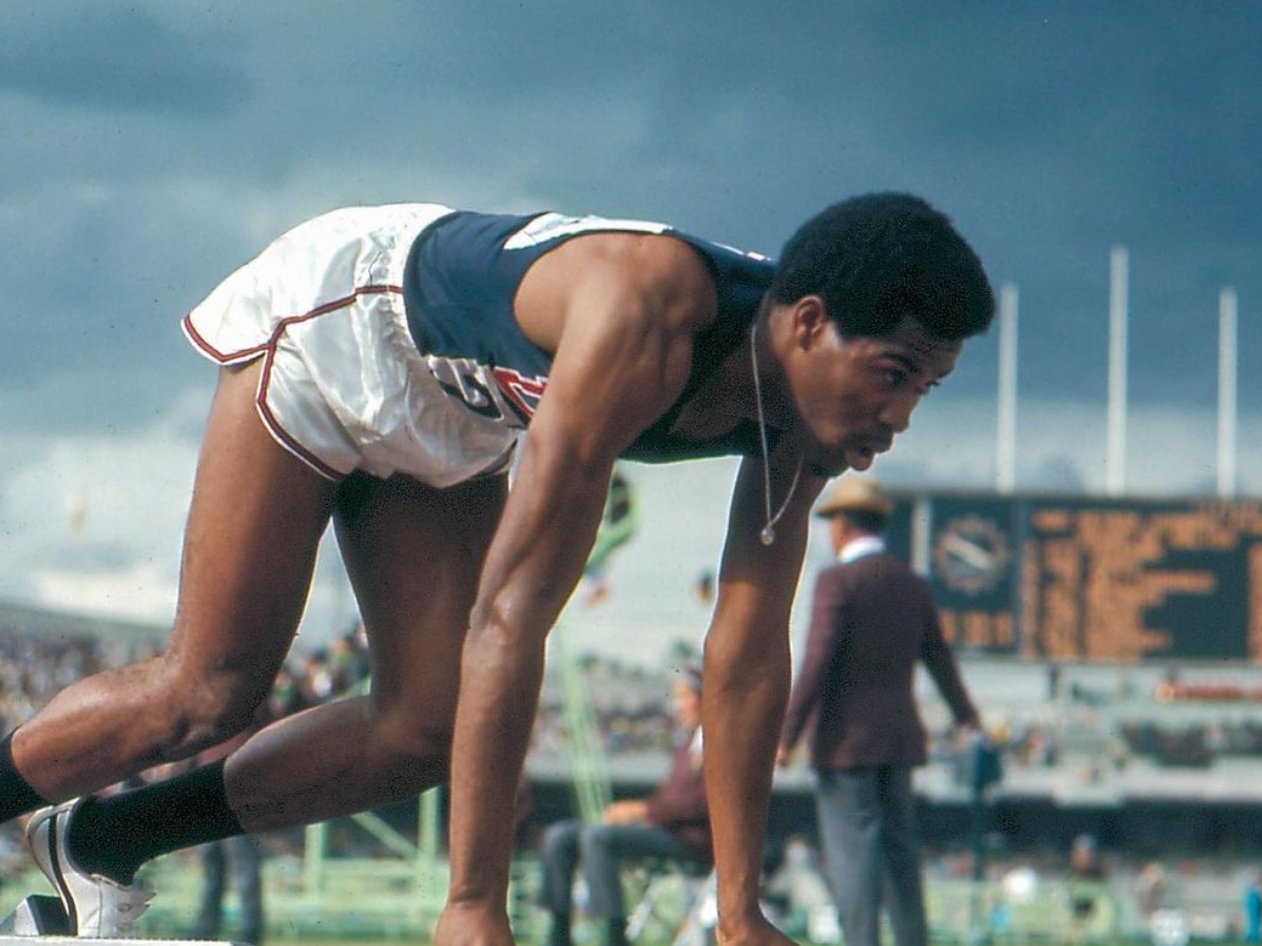By: Zachary Draves
He was a relay runner who in record time passed the baton of freedom fighting to the current generation of athlete activists.
A man who was an instrumental force behind one of the most transformative movements in history.
His name was Lee Evans.
The news of his passing at the age of 74 has forced many to remember a legacy that has largely been seen as a historical footnote.
Lee was part of the legendary San Jose State University track team in the late 1960’s that was deemed “Speed City” that produced some of the fastest runners ever which included his future Olympic teammates Tommie Smith and John Carlos.

(Courtesy: San Jose Mercury News)
It was also during that time they became aware of the power they had as athletes to speak up on matters of racial justice and they had San Jose State sociology professor and former athlete Dr. Harry Edwards as their mentor.
In 1967, Dr. Edwards created the Olympic Project for Human Rights in which they called for a boycott of the Mexico City Olympics in 1968 with their slogan being “Why run in Mexico only to crawl home?”
In other words, they were refusing to be propagandized performers for the American system that has never valued black lives.
Lee became a passionate and early supporter of the movement.
Ultimately it was decided that the athletes would go to Mexico City and make their point known.

(Courtesy: SpeedEndurance.com)
The protest by Tommie and John is unforgettable and indelible and the story is well documented.
What is not really well known is that Lee engaged in his own protest after his teammates were kicked off the team for theirs.
He was stuck between a rock and a hard place and agonized over whether to withdraw from the 400 meter final and keep in mind he was receiving racist death threats and would have certainly been kicked off the team if he did anything remotely close to resembling what happened prior.
After getting a green light from Carlos, Lee got on that track and won gold in 43.86 seconds, a record that stood for twenty years.
It was also a complete sweep by the Americans with Larry James taking the silver and Ron Freeman the bronze.
(Courtesy: Yahoo Sports)
On the victory podium, all three men accepted their medals wearing black berets that were a prominent accessory used by the Black Panther Party.

(Courtesy: New York Times)
Lee used the politics of adornment to make a statement.
He would go on to win a second gold medal anchoring the US team in the 1,600-meter relay in 2 minutes 56.16 seconds, a record that lasted for 24 years.
In the years since Lee became a track and field coach in the US, Africa, and the Middle East, and was inducted into the US national track and field hall of fame in 1983 and the US Olympic Hall of Fame in 1989.
But his greatest legacy can be best summed up by Dave Zirin, sports editor of the Nation Magazine, who had the privilege of knowing Lee.
“The legacy of 1968 gold medalist Lee Evans to me is that it’s not enough just to act, you need to be an organizer before the action. Lee Evans was an organizer. What he did and everything that happened at the 1968 Olympics was a result in part of his ability to organize. He was beyond a symbolic athlete activist. He did the work. And then he trained two generations of athletes in how to do the same.”
Lee Evans will be missed but never forgotten.
He walked the walk and talked the talk and did so without compromise or conciliation.
That’s quite a gift.
Rest in Power.


 NFL
NFL






